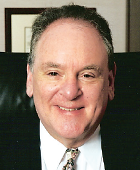I believe that factors on career choice are multi-determined. In my case I can identify two significant factors. The first is reading the works of Sigmund Freud in high school and the second was noting close family members who had been treated for mental illness with good results.
When I attended the Putney School in Putney, Vt., for my last two years of high school, I discovered works written by Freud in the school library. I was fascinated by his work and thought that he was a genius. In a naïve fashion, I wondered how I could become someone like him. As part of my explorations, I came to realize that he was a physician and that I should consider a course as a pre-medical student when I went to college.
The other early influence was that in my early teens my mother was hospitalized in the New York Hospital Westchester Division in my home town for almost a year. I was told that she was treated for depression with electroconvulsive treatments. I was not astute enough to know that she was depressed but was so informed by my family. I did note that she was much improved after discharge and that she continued to see Dr. Curtis Prout, a senior staff psychiatrist, as an outpatient for a number of years and that she thrived after her discharge from the hospital and suffered no recurrences. Looking back, I believe that my mom had an involutional depression and that four of her siblings had been treated for psychiatric conditions that likely included agoraphobia, posttraumatic stress disorder, and postpartum depression. They too seemed to benefit from therapy.
To test my own interest in going to medical school, I worked summers in the same hospital as a laboratory technician and as an orderly on one of the male inpatient wards. In the laboratory I recall testing urines on patients for bilirubin. I was told that 5 percent of patients who had been prescribed the then-recently approved phenothiazine antipsychotics such as Thorazine and Stelazine had abnormal liver studies. I also did white blood counts to check for leukopenia. As an orderly, I assisted in such procedures as ECT, insulin shock treatments, hot tub treatments, and cold pack treatments. I was impressed with the care and attention given to the patients. I also spent a summer working in the laboratory at the Strang Prevention Clinic of the Memorial Hospital in New York City to solidify my interest in medicine.
I was not disappointed in my choice of psychiatry when I was a medical student at the University of Buffalo. I thought that one of the best lecturers in my first two years of medical school was Dr. S. Mouchly Small. He gave weekly lectures on personality development and psychopathology in our second year. He taught us psychiatric interviewing at the Buffalo State Hospital; he conducted interviews on chronic patients followed by groups of four of us going to the bedside to jointly interview patients.
To my surprise, I also liked clerkships in other disciplines in medicine, particularly internal medicine, but it was clear that my first love was psychiatry and continues to be so, 53 years after graduating from medical school. ■
APA President Anita Everett, M.D., invites you to write a brief article about why you aspired to be a psychiatrist. If you are interested in doing so, please contact Dr. Everett at
[email protected] or Cathy Brown at
[email protected].

